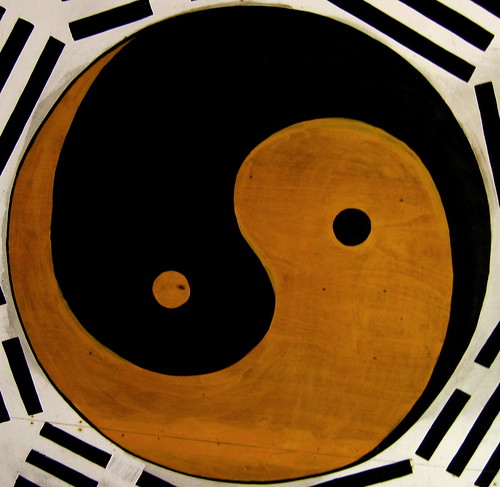
In a comment here, a friend of mine wrote, "Though I do believe we are all capable of 'good,' I tend to think we are more evil than good and society forces us to sublimate it and/or different religions/spiritual praxes condition us otherwise."
What I find particularly interesting about this statement is that we really cannot know for certain if that's ture, or if we are inherently good. Maybe we're not inherently anything! And of course, what do we mean when we use the terms, "Evil" or "Good"? She noted, "I know it reflects a sad state of mind and heart." But I really don't think so. We are all making the best choices and drawing the best conclusions we can, given the evidence with which life presents us.
She quoted the book of Genesis: "Never again will I curse the ground because of man, even though every inclination of his heart is evil from childhood." (Genesis 8:21) I think it's accurate to say that this is a common Christian view presented in the Bible, that we are fallen and can only be made holy (whole?) again through Jesus. Obviously, other religions hold different views (i.e. Buddhism).
I truly do find it fascinating how we all view things so differently. You can say that we are more evil than good and we have to fight for altruism to shine forth in our lives. I can say that we are all ultimately perfect, but the defilements of anger, greed, and delusion obscure it—which is a product of our own making. The thing is that, from an observational standpoint, we see the same thing! People usually have to work at being altruistic and compassionate. You say that's because inherently, we're not nice. I say that's because our innate compassion and love are just veiled through our own doing.
She wrote, "You've got to fight to be good and do the right thing. It ain't easy. But it's worth it." You sure as h*ll hit the nail on the head with that one!
1-Minute Contemplation: What is the basis of our existence? Are we innately good or innately evil? Why? What do we even mean by "good" and "evil"? Are these arbitrary definitions? Or is there some ground upon which these terms are based?




